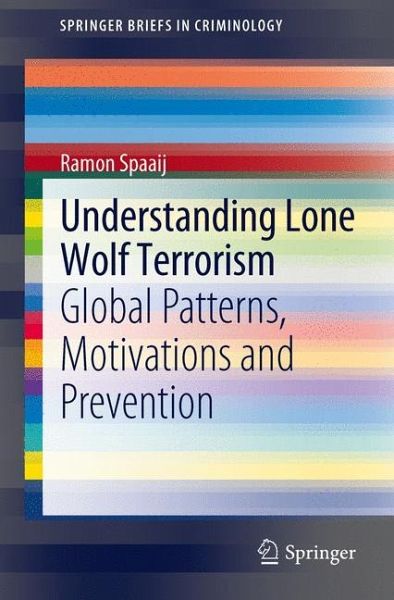
Understanding Lone Wolf Terrorism
Global Patterns, Motivations and Prevention

PAYBACK Punkte
25 °P sammeln!
What drives the lone wolf terrorist to commit mass violence? What are their ideologies and motivations? How do they plan and carry out their attacks, and who do they target? How can lone wolf terrorism be effectively countered? One of the first in-depth analyses of lone wolf terrorism, this publication sets out to answer these questions. Drawing on extensive international data and qualitative case studies, it examines the global patterns in and key features of lone wolf terrorism over the past four decades. This engaging text will be essential reading for students and researchers on terrorism ...
What drives the lone wolf terrorist to commit mass violence? What are their ideologies and motivations? How do they plan and carry out their attacks, and who do they target? How can lone wolf terrorism be effectively countered? One of the first in-depth analyses of lone wolf terrorism, this publication sets out to answer these questions. Drawing on extensive international data and qualitative case studies, it examines the global patterns in and key features of lone wolf terrorism over the past four decades. This engaging text will be essential reading for students and researchers on terrorism and violent conflict and offers unique and invaluable insights to those working to prevent or minimize the effects of terrorism and political violence.













